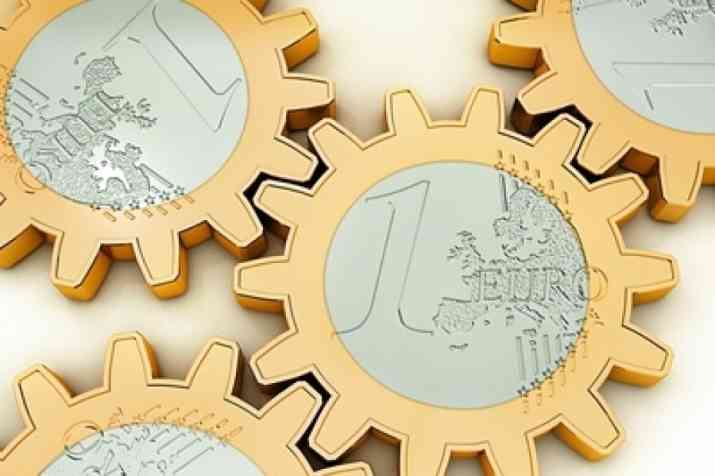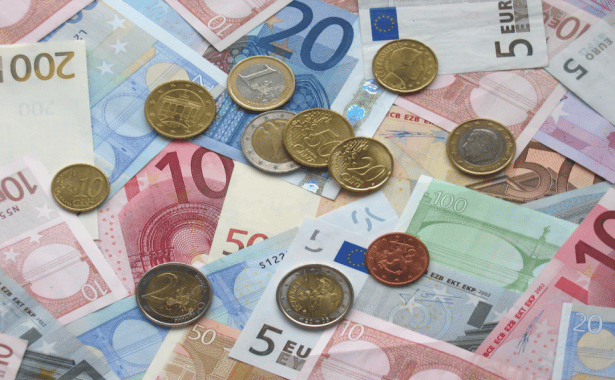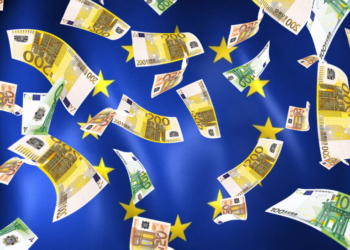Brussels – The EU Council and Parliament agreed on new fiscal rules at the end of marathon negotiations that lasted over 12 hours and ended during the night. The basic framework does not change: the deal does not touch the numerical thresholds for reducing imbalances, while it ensures more flexibility on investment by excluding national expenditure on the co-financing of EU-funded programs from deficit and debt calculations.
Forced reductions, Italy must reduce by 1 percent per year
The classic reference thresholds do not change: the 3 percent deficit-to-GDP and the 60 percent debt-to-GDP ceilings remain as they are part of the Treaties on the functioning of the EU, but what changes is the way of considering them. To ensure fiscal consolidation, countries with a debt-to-GDP ratio above 90 percent will have to reduce this ratio by 1 percent annually, while those with a deficit/GDP between 60 percent and 90 percent by 0.5 percent per year. Italy, therefore, will have to reduce its debt by one percentage point per year, on a par with Belgium, France, Greece, Portugal, and Spain. The deal confirmed the hard line that Scholz set back in the day.Like everyone else, Italy will also have to reduce the deficit because of the other so-called safeguard rule, which involves creating preventive spending margins. The agreement stipulates that even those who do not exceed the 3 percent deficit/GDP ceiling must still reduce it to create a 1.5 percent buffer in case of a shock without having to put pressure on accounts. 4-7 year reduction plan.
The consolidation period is four years, with plans to be submitted by each member state by September 20, 2024. This reference trajectory may, however, be extended to a maximum of seven years upon request by member states. Granting more time to reduce debt is contingent on a plan for reforms and investments to improve growth potential and resilience to shocks. Reforms and investments must specifically address common EU priorities, namely green and digital transition, energy security, strengthening competitiveness, “and, where necessary, the development of defense capabilities”. In submitting their plans, governments must explain how investments they will invest in the EU priority areas of climate and digital transitions, energy security, and defense. Even though the main points of the new Stability Pact are the same for all, the reform paths and recommendations will be different and differentiated, tailored to member states according to their respective situations.
National co-funding not calculated in spending
The main new element is the national public expenditure that accompanies the support of EU programs. Whether it is research or cohesion, the EU contributes only partially to the implementation of programs: this is co-financing or sharing the costs between the Union and national governments. Under the Council-Parliament agreement, national expenditure of co-financed EU programs will be excluded from a government’s expenditure, creating more incentives to invest. It was a divisive point among parliamentary groups, with the Social Democrats securing this condition of offsetting deficit and debt calculations.
Displacement due to exceptional circumstances
Subject to debt repayment plans and the creation of fiscal buffers, the deal recognizes the possibility of adverse eventualities that may challenge the reform path. At the request of a member state, the Council may allow to deviate from the spending path in case of exceptional circumstances beyond its control that lead to a major impact on its public finances. The minimum extension is one year, but it can be extended, even more than once, if such exceptional circumstances persist. An extension would be for a maximum of one year and more than once.
Fines for those who don’t do their homework
As a guarantee of government accountability in the path of reform, the excessive debt procedure is being tightened, and will be made more effective. Even though fines are envisaged, to date they have never been imposed. The Commission intends to reduce the amounts of fines, but to impose more of them. That is why it has been provided that in the event of deviations or insufficient reduction commitments, penalties of 0.05 percent of national GDP may be imposed every six months, for possible fines amounting to 0,1 percent of GDP per year (instead of a non-interest-bearing deposit of up to 0.5 percent of GDP, as provided until now).
The reactions
The Belgian rotating presidency rejoices. Vincent van Peteghem, Belgium’s finance minister, welcomes what he considers “a balanced agreement that will now allow for swift implementation.” New rules come out of the trialogue that “will significantly improve the existing framework and ensure effective and enforceable rules for all EU countries. At the same time, the rules of the new Stability Pact “will ensure balanced and sustainable public finances, strengthen the focus on structural reforms, and foster investment, growth, and job creation across the EU,” he added. Esther De Lange (EPP), among those responsible in Parliament for the dossier, breathes a sigh of relief. “A new economic governance framework was needed,” and the outcome is “solid and credible” rules. Margarida Marques (S&D), another co-rapporteur on the legislative file, emphasizes the results achieved in terms of spending. “The new rules will provide more room for investment, flexibility for member states to facilitate their adjustments, and strengthen the social dimension,” she said. ” In a case-by-case and medium-term approach, along with increased ownership, member states will be better equipped to prevent austerity policies,” she adds. Far from convinced is the Left coalition, which instead attacks for results seen as counterproductive. “Austerity is back and we know who signed the agreement,” said José Gusmão. “The negotiations have led to stricter rules on the deficit, more restrictive control over public spending by member states,” he denounces. The 5 Star Movement (M5S) delegation is also critical: “The new parameters will push not only Italy but the entire Continent, into recession because they will reduce investment.” “According to some estimates, these targets will weigh on our country’s spending capacity by 12-13 billion over seven years,” the M5S warns. “Meloni, Salvini, and Tajani publicly should publicly explain whether they will vote for this ‘Stability Package’ that imposes 13 billion cuts a year before the final vote in the European Parliament,” said Mario Furore.
English version by the Translation Service of Withub


![Il consiglio Ecofin straordinario, in videoconferenza, trova l'accordo per la riforma del patto di stabilità [23 dicembre 2023. Foto: European Council]](https://staging.eunews.it/wp-content/uploads/2023/12/ecofin-231220-350x250.png)




